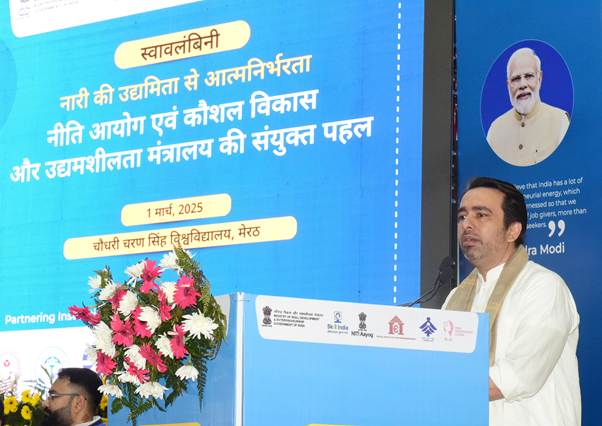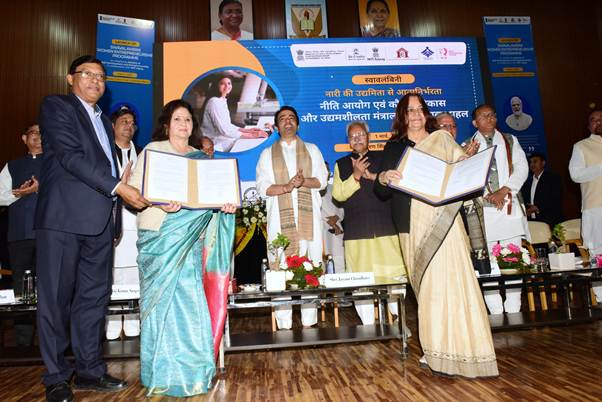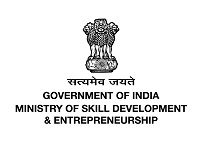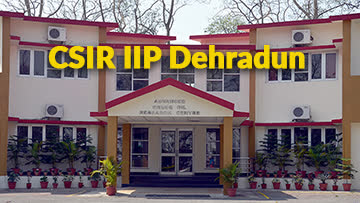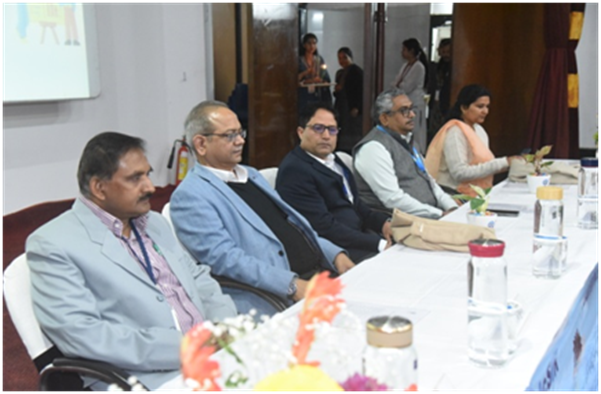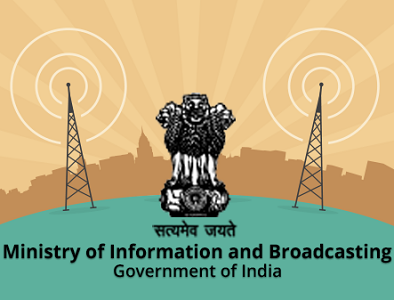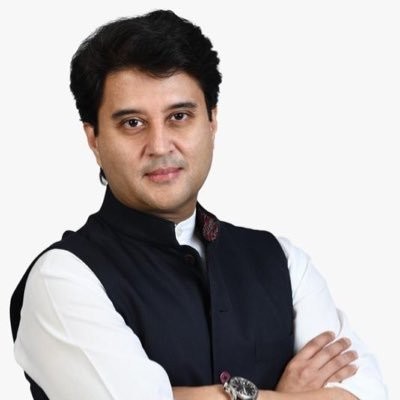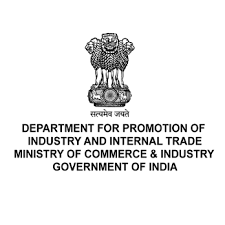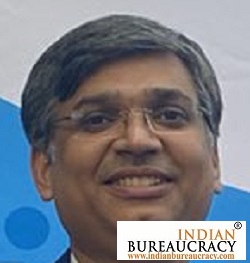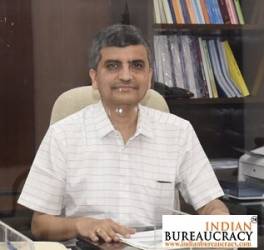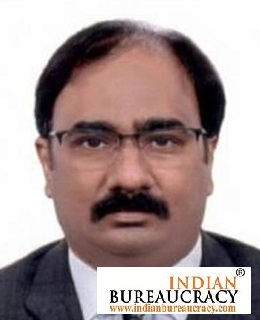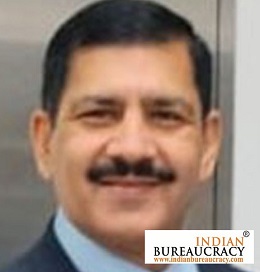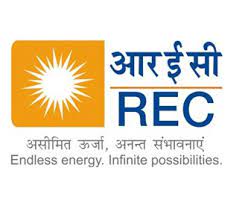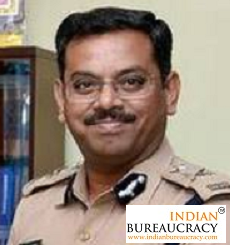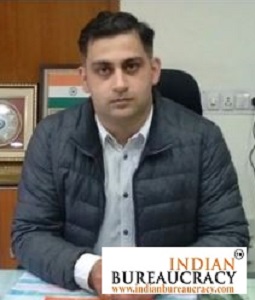Obesity has become a major public health challenge in India, affecting people across all age groups and increasing the risk of non-communicable diseases (NCDs) such as diabetes, heart disease, and hypertension. Driven by unhealthy diets, sedentary lifestyles, and environmental factors, obesity is rising at an alarming rate, impacting both urban and rural populations. The shift towards processed foods, reduced physical activity, and lifestyle changes has further contributed to this growing crisis.
Recognizing the urgency of this issue, Prime Minister Narendra Modi, in his recent Mann Ki Baat address, emphasized the need for nationwide awareness and collective action to reduce obesity, particularly through lower edible oil consumption. He nominated prominent individuals across India to lead an awareness movement. This call for collective action highlights the importance of tackling obesity at both individual and community levels, reinforcing the need for a fitter and healthier India. The Government of India has launched several initiatives, including the Fit India Movement, NP-NCD, POSHAN Abhiyaan, Eat Right India, and Khelo India, to promote healthier lifestyles, better nutrition, and physical activity. These programs aim to encourage long-term behavioural change, ensuring a healthier future for all. As India moves towards Amrit Kaal, a whole-of-government and whole-of-society approach is being adopted to tackle obesity through policy reforms, community engagement, and regulatory measures. Strengthening public health systems, promoting sustainable food habits, and increasing awareness are key to reversing this trend and safeguarding future generations from obesity-related health risks.
Understanding Obesity: Definition and Causes
What is Obesity?
According to the World Health Organization (WHO), obesity is defined as an abnormal or excessive fat accumulation that presents a risk to health. The commonly used metric to classify obesity is Body Mass Index (BMI), where a BMI of 25 or above is considered overweight, and a BMI of 30 or above is classified as obese. In India, a person is considered overweight if their Body Mass Index (BMI) is between 23.0 and 24.9 kg/m², and obese if their BMI is 25 kg/m² or higher. Morbid obesity occurs when a person’s BMI is 35 or more.
What is BMI?
Body Mass Index (BMI), previously known as the Quetelet index, is a simple way to check if an adult has a healthy weight. It is calculated by dividing a person’s weight in kilograms by their height in meters squared (kg/m²). To find BMI, take a person’s weight (kg) and divide it by their height (m) squared.
Healthy BMI Range
A normal BMI falls between 18.5 and 24.9, based on the World Health Organization (WHO) guidelines.
Global Statistics
The prevalence of overweight and obesity has been rising steadily among both adults and children worldwide. Between 1990 and 2022, the percentage of children and adolescents (aged 5–19 years) with obesity increased fourfold, from 2% to 8%. During the same period, the proportion of adults (aged 18 and older) with obesity more than doubled, rising from 7% to 16%.
India’s Obesity Statistics
- As per the National Family Health Survey (NFHS)-5 (2019-21), overall, 24% of Indian women and 23% of Indian men are overweight or obese
- As per the NFHS-5, (2019-2021) in the category of ages 15-49 years, 6.4 % of women and 4.0 % of men, are obese.
- There has also been an increase in the percentage of children under 5 years who are overweight (weight-for-height) from 2.1 percent in NFHS-4 (2015-16) to 3.4 percent in NFHS-5 (2019-21) at All-India level.
Key Factors Driving the Rise of Obesity in India
Government of India’s Strategic Framework for Obesity Prevention
Policy Innovations and Measurable Outcomes
Recognizing obesity as a critical public health concern, the Government of India has launched comprehensive, multi-pronged initiatives to prevent, manage, and reduce obesity at all levels. The interventions are strategically designed by multiple ministries to promote a holistic approach that integrates health, nutrition, physical activity, food safety, and lifestyle modifications. These efforts can be categorized under the following key intervention areas:
- Ministry of Health and Family Welfare (MoHFW) – Strengthening Public Health Responses
1.1 National Programme for Prevention and Control of Non-Communicable Diseases (NP-NCD)
In India, non-communicable diseases (NCDs) cause 63% of all deaths, according to WHO’s 2018 – NCD India profile. The leading causes are cardiovascular diseases (27%), followed by chronic respiratory diseases (11%), cancers (9%), diabetes (3%), and other conditions, including obesity (13%).
Non-communicable diseases (NCDs) such as cardiovascular diseases, cancers, diabetes, and chronic respiratory diseases are largely driven by modifiable lifestyle factors, including tobacco use, unhealthy diets, physical inactivity, and alcohol consumption. Air pollution further increases the risk. These factors contribute to obesity, high blood pressure, elevated blood sugar, and raised cholesterol levels, all of which significantly increase the likelihood of developing NCDs. Since many of these risk factors are preventable, addressing obesity and unhealthy habits can play a crucial role in reducing the burden of NCDs.
The Department of Health and Family Welfare under the National Programme for Prevention and Control of Non-Communicable Diseases (NCDs) (NP-NCD) through the National Health Mission (NHM), aims to promote health through behaviour change by engaging communities, civil society, media, and development partners. It focuses on screening, early diagnosis, management, referral, and follow-up at all healthcare levels to ensure continuous care. The program also strengthens the capacity of healthcare providers for prevention, treatment, rehabilitation, awareness (IEC/BCC), monitoring, and research. Additionally, it enhances supply chain management for essential drugs, equipment, and logistics while ensuring effective supervision, evaluation, and nationwide implementation through a uniform ICT system.
Mortality due to Non Communicable Diseases in India
Key Components
- Facilities Established Under NPCDCS – 682 District NCD Clinics, 191 District Cardiac Care Units, 5,408 CHC NCD Clinics.
- Preventive Care & Awareness – Implemented through Ayushman Bharat HWCs with wellness activities & community outreach.
- Ministry of AYUSH: Promoting Traditional & Holistic Wellness Practices
The Ministry of Ayush has implemented several initiatives to address obesity and promote effective weight management through Ayurveda:
- Specialized Ayurvedic Care: The All India Institute of Ayurveda (AIIA) in New Delhi offers specialized treatments for obesity and related lifestyle disorders. These treatments combine Panchakarma therapies, Ayurvedic medications, personalized dietary guidelines, and yoga therapy. To date, approximately 45,000 patients with diabetes and metabolic disorders have benefited from these services.
- Research and Evidence Generation: The Central Council for Research in Ayurvedic Sciences (CCRAS) conducts research to validate the safety and efficacy of Ayurvedic interventions for lifestyle disorders, including obesity. Studies have demonstrated that practices such as Dincharya (daily regimen), Ritucharya (seasonal regimen), Ahara (dietary guidelines), and Yoga are effective in maintaining overall health and preventing conditions like obesity.
- Ayurswasthya Yojana: This Central Sector Scheme, operational since FY 2021-22, includes the ‘Ayush and Public Health’ component aimed at promoting AYUSH interventions in community healthcare. The scheme supports projects focused on managing lifestyle disorders and non-communicable diseases (NCDs), with 11 projects currently addressing issues such as obesity, diabetes, hypertension, and osteoporosis.
- Collaborative Research Efforts: The Ministry has partnered with the Council of Scientific and Industrial Research (CSIR) to enhance scientific research in Ayurveda. This collaboration focuses on developing and implementing research programs that integrate traditional Ayurvedic knowledge with modern science, particularly in managing lifestyle disorders like obesity.
Through these comprehensive measures, the Ministry of Ayush is actively contributing to the prevention and management of obesity, promoting a holistic approach to health and well-being.
- Ministry of Women and Child Development:
POSHAN Abhiyaan : Preventing Childhood Obesity
POSHAN Abhiyaan, launched on 8th March 2018, is the Government of India’s flagship initiative for holistic nourishment. It aims to improve nutritional outcomes for children, adolescent girls, pregnant women, and lactating mothers by fostering a convergent ecosystem that enhances nutrition content, delivery, and awareness to combat malnutrition and promote overall wellness.
Key Components of POSHAN Abhiyaan & Poshan 2.0
POSHAN Abhiyaan adopts a holistic approach to tackle malnutrition through technology-driven monitoring, multi-ministerial collaboration, and community engagement under the Jan Andolan Movement. It promotes Poshan Vatikas (Nutri-Gardens) for homegrown nutrition, strengthens Anganwadi services and adolescent health under Mission Saksham Anganwadi & Poshan 2.0 (2021), and integrates AYUSH-based wellness practices. The program emphasizes maternal and child nutrition, dietary diversity, and food fortification, encouraging millet consumption and nutrient-rich diets to combat anemia and deficiencies.
- Ministry of Youth Affairs and Sports: Fostering a Culture of Physical Fitness
4.1 Fit India Movement: A Mass Fitness Revolution
- Launched by PM Narendra Modi in 2019, the Fit India Movement promotes active lifestyles and encourages individuals to incorporate fitness into daily routines.
- Key Components:
- Fit India School Certification for schools incorporating physical activity in their curriculum.
- Fit India Sundays on Cycle initiative promoting cycling and walking in urban spaces
Dr. Mansukh Mandaviya, Union Minister of Youth Affairs and Sports, inaugurated the ‘Fit India Cycling Drive’
-
- Community-led fitness programs such as mass yoga sessions, running clubs, and workplace fitness challenges.
4.2 Khelo India Programme: Building an Active Generation
The Khelo India – National Programme for Development of Sports was launched in 2016-17 to promote sports participation at all levels, from schools to elite competitions, by fostering a culture of athletic excellence across the country. It focuses on providing top-notch training and world-class infrastructure to young athletes, ensuring they receive the necessary resources to excel in their respective sports. The scheme ensures equal sports opportunities across rural and urban India.
Major Achievements:
- Food Safety and Standards Authority of India (FSSAI): Regulating Food for Public Health
5.1 Eat Right India Movement (FSSAI): Reforming Food Choices for a Healthier Future
The Eat Right India movement, initiated by the Food Safety and Standards Authority of India (FSSAI), encompasses several key initiatives aimed at ensuring safe, healthy, and sustainable food for all. Below are the primary initiatives:
Key Initiatives of Eat Right India
Supply-Side Initiatives:
- Food Safety Training and Certification (FoSTaC): The Food Safety Training and Certification (FoSTaC) certificate is issued by FSSAI, certifying food safety supervisors in every food business.
- Certification Programs: Ensures hygiene in street food hubs, markets, stations, and places of worship.
- Hygiene Rating: Rates restaurants, catering services, sweet shops, and meat vendors on hygiene standards.
Demand-Side Initiatives:
- Consumer Awareness: Promotes food safety through Eat Right Campus & Eat Right School programs.
- Adulteration Detection: Provides DART Book & Magic Box for home and school food testing.
| Food Safety DART Book – The Detect Adulteration with Rapid Test (DART) booklet provides over 50 easy household tests to detect food adulteration using simple solutions. Freely downloadable for public awareness, it cannot be used for commercial purposes or imply FSSAI endorsement. |
| Food Safety Magic Box – FSSAI’s Food Safety Magic Box-Companion Book is a learning tool for schools, teachers, and parents, featuring 102 simple tests to detect food adulterants, along with a companion guidebook. |
FOOD SAFETY-MAGIC BOX FOOD SAFETY – DART BOOK
- Mobile Testing: Deploys Food Safety on Wheels for remote-area testing & training.
- Food Fortification: Promotes fortified staples to tackle micronutrient deficiencies.
The Food Safety & Standards Authority of India (FSSAI) plays a pivotal role in guiding public dietary choices and regulating food safety standards to combat obesity and lifestyle-related diseases.
5.2 Nationwide Awareness Campaign – ‘Aaj Se Thoda Kam’
To encourage healthier eating habits, FSSAI launched the ‘Aaj Se Thoda Kam’ campaign, urging consumers to gradually reduce their intake of fat, sugar, and salt. This multimedia campaign includes:
- Short educational videos with subtitles in 12 languages to reach a diverse audience.
-
- Flyers, banners, and audio clips reinforcing the message of mindful eating.
- A dedicated ‘Eat Right India’ website, offering valuable resources for making informed dietary changes.
5.3 Regulating High Fat, Salt, and Sugar (HFSS) Foods
FSSAI, in collaboration with the ICMR-National Institute of Nutrition (NIN), has recommended mandatory labeling of High Fat, Salt, and Sugar (HFSS) foods. This initiative aims to:
-
- Ensure clear front-of-pack labeling on ready-to-eat foods.
- Help consumers make informed choices and moderate their intake of unhealthy foods.
5.4 Multi-Platform Public Awareness Initiatives
The Government, with FSSAI’s leadership, has been actively spreading awareness through:
- Print, electronic, and social media campaignseducating the public on healthier food choices.
- Integration with the National Programme for Prevention and Control of Cancer, Diabetes, Cardiovascular Diseases, and Stroke (NPCDCS), which supportsstate-level awareness activitieson obesity prevention and healthy living.
5.5 RUCO Initiative
FSSAI’s RUCO (Repurpose Used Cooking Oil) initiative ensures that used cooking oil is not re-entered into the food chain but is safely repurposed. When oil is repeatedly used for frying, harmful Total Polar Compounds (TPC) form, increasing the risk of diseases like hypertension, atherosclerosis, and liver disorders. To protect public health, FSSAI has set a 25% TPC limit beyond which oil must not be used. Under the EEE Strategy (Education, Enforcement, Ecosystem), used cooking oil is collected by aggregators from food businesses and redirected for biodiesel or soap production, promoting health, energy security, and environmental sustainability.
Conclusion
Obesity is a pressing public health challenge in India, but the nation is actively addressing it through a comprehensive, multi-sectoral approach. Under the leadership of Prime Minister Narendra Modi, the Government of India has launched strategic interventions integrating health, nutrition, fitness, and regulatory measures. Initiatives such as the Fit India Movement, NP-NCD, POSHAN Abhiyaan, Eat Right India, and Khelo India are fostering a culture of health consciousness, preventive care, and active living. As India moves towards Amrit Kaal, the vision of a Fit and Healthy India is becoming a reality. With sustained commitment, cross-sector collaboration, and active citizen participation, the country is well-positioned to reverse obesity trends and safeguard future generations. By prioritizing awareness, lifestyle changes, and policy-driven action, India can set a global example in tackling obesity—building a nation that thrives on wellness, vitality, and holistic well-being.
